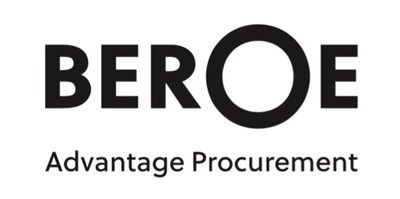Coronavirus Slows Down Global Construction Industry, Beroe Analysis
The spread of the coronavirus is expected to have a strong negative effect on global construction, with the global construction growth slumping to 0.5 percent CAGR from 3.1 percent growth for 2020. The global construction industry will face disruptions for next 3-4 months from the pandemic as companies globally are being squeezed by the coronavirus outbreak, through labor market and supply chain disruptions, according to Beroe Inc., a procurement intelligence firm. The construction demand will weaken and steel production levels are likely to go down.
Construction work globally has tumbled as nationwide lockdowns to combat the COVID-19 pandemic kicked in, causing concerns that the companies would see profits being hurt and may even incur losses on some projects. Companies with worldwide supply chains may see tier 2 and tier 3 suppliers highly affected by disruptions related to the pandemic. The construction industry may experience constant supply issues surrounding construction equipment and materials from Asia. The concern for the construction sector is that most of it has already been facing monetary stress, shrinking orders and tight working capital.
Beroe, which is based in North Carolina, further stated that procurement experts can access this report on market intelligence platform Beroe LiVE: live.beroeinc.com
The construction industry is currently experiencing a dull period which is expected to continue for the medium-long term. As a result of COVID-19, many companies in various trades have revised their scheduled capital expenses due to shrinkages in product demand (due to global quarantine measures), lesser commodity prices and, also substantial, uncertainties around supply logistics and the supply of materials. The consumption and production of materials like steel, cement, carpets, luxury vinyl tiles, etc. are expected to dip globally along with trade restrictions amongst countries.
The impact of COVID-19 is medium-high for construction materials as exports of steel, wood, plaster, aluminum, glazed partition systems, cement and cementitious products, paints, HVAC equipment, electrical equipment, and light fixtures from China are expected to be delayed. Cement prices fell in March globally after rising for two straight months as the novel coronavirus outbreak slowed down economic activity. A construction contract may allow for time extensions when contractors cannot obtain materials or there is a supply shortage as a result of an unforeseeable epidemic.
Key Findings:
- The spread of COVID-19 in China has led to a stoppage in the manufacture of LVT and rolled rubber which are shipped to the U.S. on a regular basis, causing supply chain disruptions.
- Buyers of electrical materials in traditional markets such as the Middle East and North Africa, Europe and Southeast Asia are refraining from booking amid reduced local economic activity.
- The project design phase has a high impact on managing project delays, where larger levels of cost and schedule controls should be provided, and considerations of altering material specifications, using products manufactured locally and ample in stock.
- Suppliers are shifting from a traditional design-bid- build delivery method, to a construction management at risk (CMAR) delivery model to mitigate schedule challenges.
- At the project construction phase short time worker policies are being incorporated for cost savings, where project labor agreements provide for competitive terms and better-quality work rules with local unions for high spend projects.
- Suppliers are considering reconfiguration of project proposals to include extended, second, and third shifts or other tactics in the initial buyout, helping construction sites with minimum trade workers better comply with ‘social distancing’ guidelines.
The research methodology adopted for the report included:
- Experts with twenty years of domain experience
- Interaction with buyers
- Inputs from supply chain partners
To mitigate the effects of COVID-19, owners and contractors should work together to implement public health and infection control improvements on the jobsite by providing masks, sanitizers, and consider workforce emergency planning scenarios, including during a period of diminished demand and activity. Most contractors can claim postponement of time of the completion date of the project as a result of interruption caused by the novel coronavirus. Companies with extensive international supply chains should contemplate the tax and transfer-pricing components of restructuring their supply chains by identifying alternate suppliers.
The report also includes:
Market Analysis:
- Construction and Project Management
- Major Risk Factors
- Risk Probability
- Impact Analysis
- Engineering Construction
Regional Analysis:
- U.S.
- U.K.
- Italy
- Spain
- France
- China
- India
COVID-19 Impact Analysis:
- Outlook Analysis
- Global Construction
- Supply Chain Disruptions
- Labor Shortages
- Construction Materials
- Mitigation Measures
- Managing Project Delays
About Beroe Inc.:
Beroe is the world’s leading provider of procurement intelligence and supplier compliance solutions. We provide critical market information and analysis that enables companies to make smart sourcing decisions—leading to lower costs, greater profits and reduced risk. Beroe has been providing these services for more than 13 years and currently works with more than 10,000 companies worldwide, including 400 of the Fortune 500 companies.To learn more about Beroe Inc., please visit: https://www.beroeinc.com







